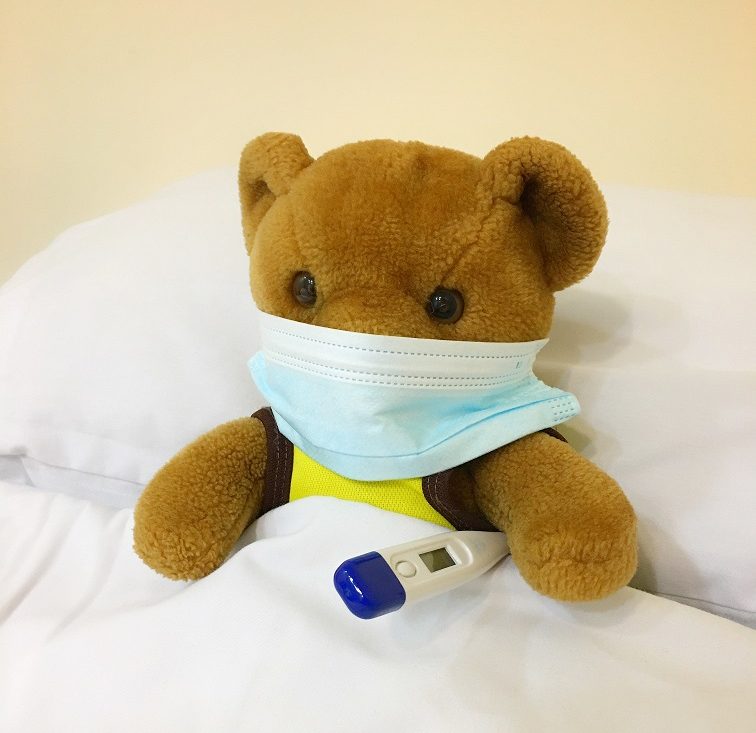As much as we’d like to prevent our kids from ever getting sick, the reality is that they’re bound to get sick at some point. And when they do, their sleep will most likely be disrupted.
Some illnesses disrupt sleep more than others. Maybe your child catches a cold, they fall asleep just fine, sleep a bit more than usual, and are bit fussy when they’re awake. Or maybe your child gets really sick, has trouble falling asleep, can’t seem to stay asleep for long, and spends a lot of time crying.
There are several ways you can help your child sleep when they’re sick, but it really depends on the nature of their illness.
Regardless, here are 7 tips to help your child sleep when they’re sick:
(Note: The advice you receive from Prairie Moon Sleep Solutions is for informational purposes only and is intended for use with common early childhood sleep issues that are wholly unrelated to medical conditions. Prairie Moon Sleep Solutions’ advice is NOT intended to be a substitute for medical advice or treatment. Always seek the advice of your doctor or another qualified health practitioner regarding any matters that may require medical attention or diagnosis.)
1) Keep Naptime and Bedtime Routines Consistent
Most of the time, sick children don’t have a problem falling asleep – they have a problem staying asleep. So, stay consistent around everything you typically do leading up to naptime and bedtime. Plus, a few extra snuggles with their naptime or bedtime story can be beneficial for baby…and mom too!
2) Be Proactive
Treat any of your child’s symptoms before you start their naptime or bedtime routine. Do anything doctor and pharmacist recommended, clear out their nose really well, and cool mist humidifiers can be helpful.
3) Respond Right Away
I never recommend leaving a sick baby or child to cry for any length of time. They’re uncomfortable and need your reassurance and cuddles.
So, if your child wakes up from a short nap or in the middle of the night, respond right away. Go in, pick your child up, and treat any of their symptoms.
4) Keep Them Hydrated
For babies, decide whether or not they need a feed (nursing or bottle). Sometimes sick babies eat less during the day (with solids, breastfeeds, or bottles). So, they may need an extra feed in the night to keep them hydrated. Again, clear out your baby’s nose to help them breathe while they’re feeding.
For toddlers and older children, offer water as needed.
5) Let Them Sleep
Sleep helps boost our immune system so we can fight off illness. So, it’s normal if your child, who isn’t feeling well, wants to sleep later in the morning and take longer naps. My advice is to let them sleep and don’t wake them unless it’s time for a feed or you’re concerned about their condition.
6) Try to Maintain Boundaries, but Offer Comfort if Needed
How your child falls asleep will depend on how sick they are. They may fall asleep totally fine, or they may need some extra comfort and reassurance. Here’s a step-by-step plan for getting your sick child to sleep:
Plan A: If your child was already sleeping independently and able to soothe themselves to sleep, run through their naptime or bedtime routine, lay them down awake, and leave, letting them soothe themselves to sleep. Again, oftentimes sick children don’t have a problem falling asleep, they have a problem staying asleep.
Plan B: If your child is unable to soothe themselves to sleep as they normally do, go in, stand beside the crib and offer some comfort. Stay with them until they fall back asleep.
Plan C: If your child is too sick to fall asleep with your crib-side comfort:
- Naps: Go for a motion nap in the stroller, car seat, or baby carrier worn by a parent. A swing for a young baby can work too. (*Safety Tip: Ensure that your baby is supervised and that you are following the manufacturer’s safety precautions.) Sometimes, especially if your child has a cold, sleeping isn’t comfortable and so a motion nap can be helpful. A motion nap can also be a good idea for a nap later in the day if your child is particularly miserable.
- Bedtime and Middle of the Night: If all else fails, help your child fall asleep. Try not to bring your child to your bed. If your little one is in bad enough shape that you don’t want to leave them alone at night, try moving to their room as opposed to moving them into yours. Once your child is feeling better, it will be a quicker and easier fix.
But won’t I undo all good sleep habits I’ve worked so hard to maintain?
Yep. You might. But your child’s health is a priority, and you can always get their sleep back on track once they’re feeling better. And remember, sleep will help them fight off the illness and heal quicker.
So, if your child’s really sick and you feel you need to offer comfort, then go ahead and do it. The most important things are taking care of your child when they’re sick and making sure they get the sleep that their little body needs.
7) Recover Your Child’s Sleep After the Illness
Once your child is no longer sick and they’re back to their normal self, make a plan to recover their sleep. And how you recover their sleep really depends on how much their sleep has regressed. Sometimes, once the illness is over, your child who was an excellent little sleeper will go right back to that. And other times, it’s going to take some time, patience, and a bit of work.
Want a step-by-step plan and personalized support to get your child back to sleep?
Hop on a FREE Sleep Evaluation Call with me to learn how I can help your family get the sleep you need and deserve.

